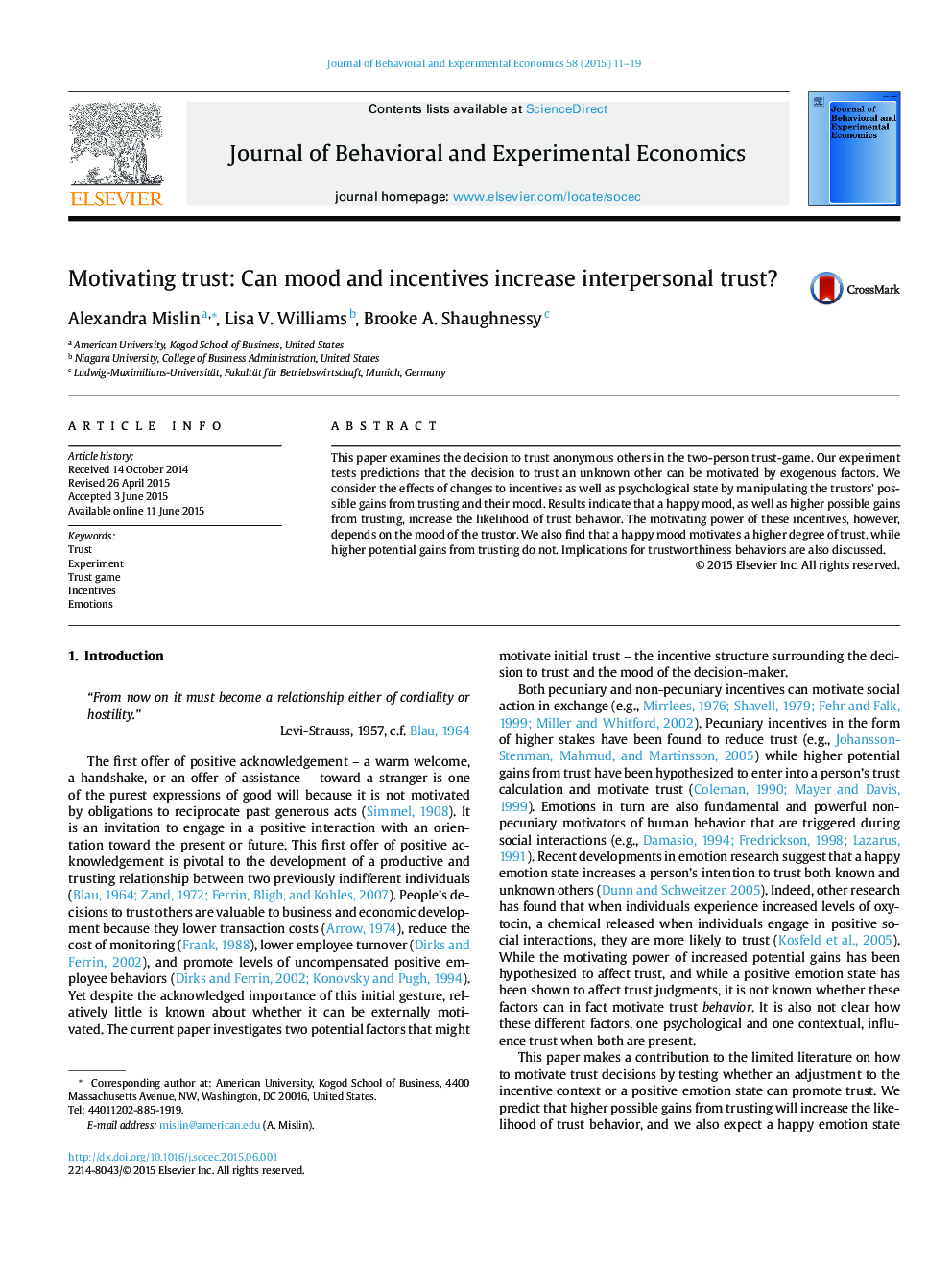| Article ID | Journal | Published Year | Pages | File Type |
|---|---|---|---|---|
| 881915 | Journal of Behavioral and Experimental Economics | 2015 | 9 Pages |
•We test whether emotions and incentives can motivate trust behavior.•Participants in a happy mood were more likely to trust and trust more.•Higher potential gains from trust increase likelihood of but not degree of trust.•Trust can be motivated by exogenous psychological factors and pecuniary incentives.
This paper examines the decision to trust anonymous others in the two-person trust-game. Our experiment tests predictions that the decision to trust an unknown other can be motivated by exogenous factors. We consider the effects of changes to incentives as well as psychological state by manipulating the trustors’ possible gains from trusting and their mood. Results indicate that a happy mood, as well as higher possible gains from trusting, increase the likelihood of trust behavior. The motivating power of these incentives, however, depends on the mood of the trustor. We also find that a happy mood motivates a higher degree of trust, while higher potential gains from trusting do not. Implications for trustworthiness behaviors are also discussed.
